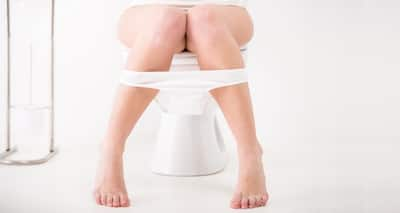Don’t Miss Out on the Latest Updates.
Subscribe to Our Newsletter Today!
Postpartum UTI -- causes, symptoms, treatment and prevention

Urinary tract infection is one of the common postpartum issues that women face.
Pregnancy changes your body in many ways. And the changes affect your body even after you give birth. Your recovering body may have to deal with various postpartum issues that vary in type and severity. One such common postpartum issue that women face after childbirth is UTI or urinary tract infection.
Urinary tract infection is defined as an infection of the lining of the urinary bladder and urethra. A urinary tract infection occurs when an infectious organism enters your urinary tract usually through the urethra and causes an infection. In some case the bacterial infection might travel up to the kidneys resulting in kidney infection.
What causes UTI post-delivery?
Also Read
A shorter urethra (4 cm) in females as compared to males (20 cm) makes it easy for the bacteria to infect the bladder. Hence UTI is very common in women than in men. And pregnancy makes them more vulnerable.
The pelvic floor muscles help in keeping the urethra closed so that urine doesn t leak out. During labour, theses muscles go into an overdrive along with the ligaments, nerves and muscles of the lower abdomen. Excessive wear and tear during delivery can lead to injury or trauma to this set of muscles and ligaments. They subsequently might fail to do their job as they did pre-labour. Pregnancy may also cause the bladder to lose its tone making it difficult for women to completely empty their bladder. This makes the urine more susceptible to flow back up the ureters. The longer the urine stays in the urinary tract, the higher the chances of bacteria to multiply, and hence, higher the vulnerability to infection.
What are the signs and symptoms?
- Inflamed bladder and urethra
- Pain in the pelvic region and abdomen
- Strong urge to urinate (but may urinate only few drops)
- Urinating more often
- Burning sensation while urinating
- Unpleasant smelling urine (foul odour)
- generalised body pain, fever and fatigue
How is it treated?
UTI is normally treated with antibiotics. In some severe cases an intravenous drip with antibiotics may be administered. If you are breastfeeding, your doctor will prescribe antibiotics that are safe to take during such times. Antipyretics may be given to help bring down a fever. Pain killers can help relieve pain.
What are the preventive measures?
- Drink plenty of water to help flush out bacteria from your excretory system
- Drink cranberry juice. The juice is scientifically proven to treat as well as prevent UTI by preventing disease-causing organisms from sticking to the walls of the urethra.
- Have plenty of vitamin C rich foods. They make the urine more acidic and help the body to destroy and reduce the number of UTI causing bacteria in the urinary system.
- Practice good restroom hygiene. Avoid tampons and regularly change sanitary pads during menstruation.
- Avoid using perfumed products, creams or gels around the genitals as they can greatly increase the susceptibility to UTI.
- Wear loose clothes to allow the genitals to remain dry and prevent the growth of bacteria.
- Be cautious while having sex. Urinate soon after having sexual intercourse to flush out organisms that may have reached the urethra. Also, wash the area with water thoroughly after having intercourse.
You may also like to read:
- Postpartum stress incontinence causes, symptoms and treatments
- 7 effective tips to prevent recurring urinary tract infections (UTI)
- What is Urinary Tract Infection (UTI)?
Read this in Marathi
Image source: Shutterstock
For more articles on cancer, visit our diseasessection. For daily free health tips, sign up for our newsletter. For disease related queries, visit our forum.


